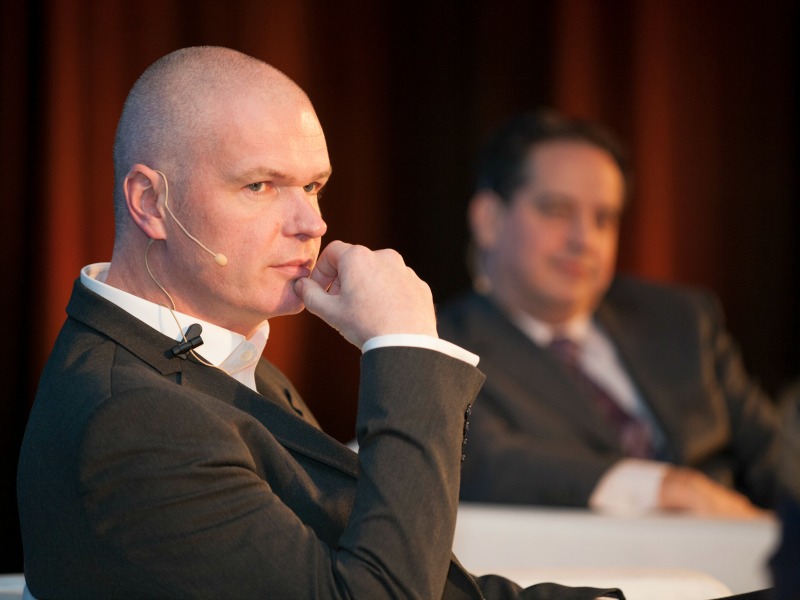Paul Holmes 17 Feb 2015 // 7:16PM GMT

SAN FRANCISCO—Marketing and communications professionals used to add value by “interrupting” their audience, but in rapid order they have had to learn how to engage and how to listen to stakeholders, attendees at The Holmes Report’s second In2 (Insight+Innovation) Summit this morning.
At a session led by Susan Butenhoff, founder of Access Communications and director of the global technology practice at Ketchum, focused on “Future-Proofing Your Brand,” MasterCard senior vice president of corporate and digital communications Andrew Bowins predicted a “golden age” for communications, but warned that professionals “are in danger of blowing it,” if they do not adapt quickly enough to changes in the environment.
Earlier, Jonathan Martin—chief marketing officer at technology company EMC—has told attendees that “in marketing, we are going through biggest transformation in well over a century.”
The classic marketing model, he said, was based on “the interrupt.” That meant, “I was going to find a way—an ad, an email, a billboard—to interrupt your day. If I could interrupt you enough my message would get through and I would be able to persuade you to buy my product.”
Marketing, he said, got really good at interrupting. “Even if you were a field in Wisconsin, you were being interrupted 2,000 times a day.” The problem, he said, was that those interruptions were being screened out.
That led to the creation of more compelling content, like EMC’s much-viewed video of a world-record truck jump, and to more precise targeting based on better data—“more breadcrumbs than ever before”—that give companies the ability to target individuals in real-time.
But Bowins warned that whether it is traditional advertising or more modern content creation, there’s a concern that “we entering into an age of content pollution…. We have become a little bit arrogant in the assumption that people want to hear from us.”
In particular, communicators need to “listen twice as hard as you speak,” using data and analytics to understand audience and what they want in terms of content. That’s something MasterCard has committed to through its “conversation suite.”
And there needs to be a relentless focus on metrics that matter to business leaders. That means moving away from a focus on the sheer volume of followers and friends to a focus on genuine engagement—actually changing behavior and creating brand advocacy—with the right people: influencers who really matter.
That means communicators need new skills--from brand journalism to data and analytics--to make a difference.


































.jpg)

















